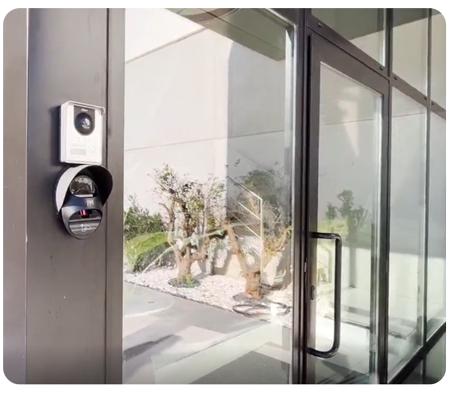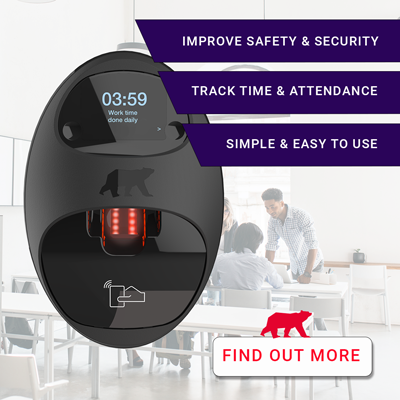

Blog
The true cost of time theft
Almas Team

According to one study, a company can lose as much as 7% of its profits due to time theft. This means that if your company is earning £100,000 per year, you could be losing £7,000 annually because of stolen time. While this isn’t enough to bankrupt a company, it’s a serious amount of money that managers cannot ignore.
Time theft is a huge, but often hidden problem across virtually all industries. Employees billing their employer for time they have not worked often seems like the kind of thing that only happens to big business. In reality, it can happen to any business. Have you considered if time theft is happening in your business, and how biometrics could help you to prevent it?
Most employers trust their employees, and when asked about time theft they may well say, ‘not my employees’. We want to build good relationships with staff, and trust them to do their jobs, because good work relationships create good businesses. Yet it is safe to assume that since the concept of being paid to work was invented, people have been consciously or unconsciously stealing time. There have been many attempts to address it using software or HR initiatives. According to research by the British Heart Foundation, smoking breaks alone cost British business £8.4 billion pounds annually in lost productivity. Time theft can take many forms:
- Proxy attendance. Claire needs to take care of an important errand and is unable to report to work. However, she can’t afford to lose a day’s worth of salary. Claire contacts her closest co-worker to sign the employee attendance sheet for her.
- Buddy punching. John is running late and miles away from the office. Fortunately, he is also extremely close to his co-worker buddy Bill. John asks Bill to clock in on his behalf. Problem solved.
- Late starts and early finishes. Jane arrives at the office at 8:05. On her way to her desk, she bumps into Louise and engages her in a chat about the latest TV series episode they are both following. Jane settles into her desk and the first thing she does is enter 8:00 as her start time on her timesheet.
- Long breaks. June went out for lunch and chanced upon a big sale in a store she loves. She extends her lunchtime, thinking her boss (and the payroll) won’t mind.
- Unauthorised overtime. Fred needs extra cash to afford a season pass to the theatre. He works extra hours even though the time is not justified.
- Personal activities at work. Rick was paid for 160 hours for the previous month. What the payroll manager doesn’t know is out of the 160 hours, 40 hours were spent on social media.
Buddy punching
Asking a colleague to clock in or out for you if you are running late or absent from work is one of the most common forms of time theft. It is very easily done when an employer uses manual timekeeping or punch cards. Manual timekeeping is still incredibly common across virtually all industries. For example, virtually all contract staff use paper-based systems on which they record their hours – these are very easy to fiddle and it is virtually impossible to catch someone unless something else happens that indicates there is a problem.
The cost of time theft
As a concept time theft may seem to be rather incidental, but if you have never stopped to look at how it is impacting your business, you may be selling yourself short. According to one study, a company can lose as much as 7% of its profits due to time theft. This means that if your company is earning £100,000 per year, you could be losing £7,000 annually because of stolen time. While this isn’t enough to bankrupt a company, it’s a serious amount of money that managers cannot ignore.
Another study revealed that an average employee steals up to 4.5 hours from their employers per week. Annually, this adds up to 6 weeks of stolen time per employee per year. This number increases as your company expands. For instance, at UK’s average hourly salary of £14, an average employee would steal £63 per week. For a 52-week fiscal year, this amounts to approximately £3,300. For an organisation of 50 employees, that’s £165,000 lost due to time theft per year. Imagine what you could have accomplished with £165,000. Hire more staff? Invest in product research and development? Scale your marketing to acquire more customers?
It’s not just about money
One of the negative effects of time theft is the ripples of stress and unproductiveness that it can create among other employees. How would you feel if you put in the work and the hours only to find out that someone who was always late, absent, took long breaks and did non-work related things were getting the same pay cheque?
Time theft can also be a result of employees feeling dissatisfied and distrustful of their employers. Issues such as not being paid a living wage and not being paid for overtime can easily cause resentment. Implementing changes to shift patterns without consulting employees can also cause bad feeling.
How biometrics can help
The key to monitoring time and attendance is finding a system which can work with any business, no matter what sector or size. Biometric fingerprint readers, with the addition of a time and attendance module, are such a system. Installing a biometric fingerprint reader, allows you to track the movements of all your employees, every day. This eliminates buddy punching and gives employees personal responsibility for their time. Biometric time and attendance systems establish and maintain employee trust and provide confidence that everyone is being paid fairly for the hours that they are working.
Gone are the days of collecting checking and collating timesheets and calculating hours. Employees can request annual leave entitlement, make absence requests and check their actual scheduled hours, all through their fingerprint. They can even request an HR meeting with their manager to discuss anything they want to – it’s logged on the system for future reference. Your business saves time and money as you have total control over every aspect of your employee management.
Consider the benefits of biometrics
Whatever type of business you run, a biometric time and attendance system can help to prevent time theft, improve feelings of employee confidence and save you time and money. Almas Industries are specialists in biometric access control systems. You can arrange your free, no obligation security survey by calling us on 0333 567 6677. If you prefer, you can always send a confidential email via enquiries@almas-industries.com.



